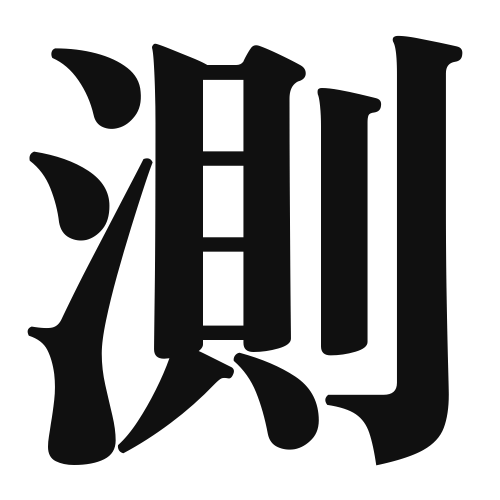1. Overview of Meaning
The kanji “測” (soku) means “to measure” or “to gauge.” It is often used in contexts related to measurement, estimation, and assessment.
2. Formation and Radical
Formation of the Kanji: The kanji “測” is a compound character (会意文字) that combines elements to convey its meaning. It consists of the radical for “water” (氵) and the character “zoku” (即), which relates to the idea of immediacy or directness in measurement.
Radical: The radical of “測” is 氵, which is associated with water and often appears in kanji related to liquids or measurements involving water.
3. Examples of Usage
Common Words and Phrases: Some frequently used words that include “測” are:
- 測定 (sokutei) – measurement
- 測量 (sokuryou) – surveying
- 測器 (sokki) – measuring instrument
Example Sentences in Daily Conversation:
- この部屋の面積を測る必要があります。 (Kono heya no menseki o hakaru hitsuyou ga arimasu.) – We need to measure the area of this room.
- 温度を測定するために、温度計を使います。 (Ondo o sokutei suru tame ni, ondokei o tsukaimasu.) – I will use a thermometer to measure the temperature.
4. Synonyms and Antonyms
Similar Kanji: A similar kanji is “計” (kei), which also means “to measure” but often implies calculation or planning rather than just physical measurement.
Antonyms: An antonym of “測” could be “無” (mu), meaning “nothing” or “absence,” as it represents the lack of measurement or quantification.
5. Cultural and Historical Background
Relation to Japanese Culture: The concept of measurement is significant in Japanese culture, especially in fields like architecture, agriculture, and traditional crafts, where precision is valued.
Proverbs and Idioms: One relevant proverb is “測るに足らない” (hakaru ni taranai), which means “not worth measuring,” indicating something insignificant or trivial.
